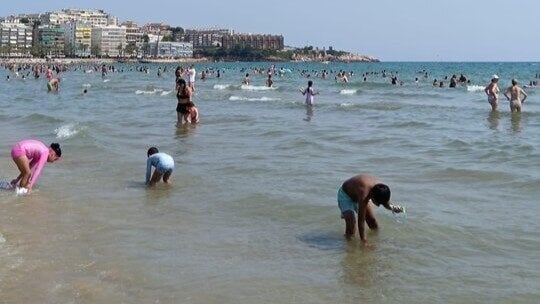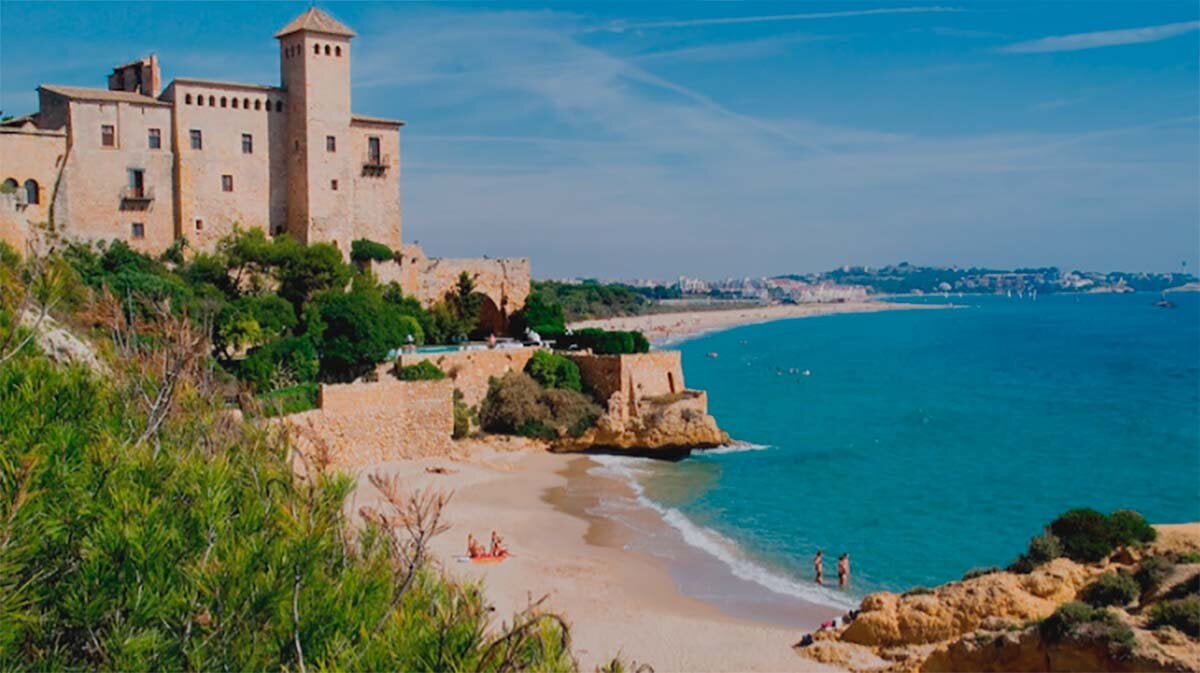
Fines on the beach: playing blades, surfing or diving can cost you up to 6,000 euros
In Aragon There is no sea, but every summer thousands of Aragonese fill the beaches of the Valencian Community, Catalonia, Andalusia or the Basque Country. From families traveling to the Golden Costa to groups of friends looking for waves in the Cantabrian, the Spanish coast becomes one of the favorite destinations to disconnect. However, this 2025 should add a point to the list of preparations for vacations: know the rules that govern the beaches and avoid sanctions that can ruin the trip.
Legálitas has analyzed the regulations that regulate sports and recreational activities in the sand and the sea, remembering that the sanctions can reach very high figures. Playing blades in prohibited areas, surfing outside the enabled channels or fishing in unauthorized places can mean fines ranging from 100 to 6,000 euros. The limitations change according to the municipality, so it is key to know what is allowed and what not in each destination.
Use and regulations on beaches
During the high season, the beaches are organized in different areas of use with the objective of guaranteeing the security and coexistence between bathtubs and athletes. The bathing areas, normally marked with yellow buoys, extend up to about 200 meters from the shore and are reserved exclusively to bathers, access to any vessel or motor device. From that distance are the vessels, which can only be accessed from the coast through properly marked nautical channels.
In addition, each town hall can establish specific sports areas for activities such as Surf, Paddle Surf, Windsurf or Volleyo Playa, which must be clearly delimited. Accessing any of these areas improperly can be considered serious infraction. For example, if a boat enters a bathing area, the fine can reach 3,000 euros, while a surfer who does not use the enabled channel could face sanctions between 300 and 3,000 euros.
Sports and prohibited games on the shore
In the most busy bathing areas it is forbidden to carry out activities that can bother or put other users at risk. This includes games with balls or shovels, as well as nautical sports outside the enabled areas. The sanctions for breaching these standards range between 100 and 3,000 euros, depending on local regulations.
In municipalities such as Benidorm, Vigo or San Pedro del Pinatar, playing shovels in unauthorized areas can cost up to 750 euros. In San Sebastián, for example, beaches such as the shell and Ondarreta prohibit the practice of surfing, bodyboard or canoeing during the high season, except in the spaces enabled for it.
Fishing: Restrictions and fines
Fishing from the shore on busy beaches is usually prohibited during the bathing schedule, which in most municipalities extends from 10.00 to 20.00 hours. This restriction is applied especially in areas reserved exclusively for bathers, in areas of environmental protection or in spaces for nautical sports and tourist activities.
Fishing without license, in unauthorized places or outside the allowed schedule, can carry sanctions ranging from 300 to 1,500 euros. In cases of non -compliance, the authorities may even seize the fishing material if they consider that it is a risk to other people.
Diving: only in authorized areas
Recreational diving is also regulated and cannot be practiced anywhere in the sea or the coast. It is prohibited in areas where there is a risk of collision with bathers or boats, such as port areas, nautical channels, maritime traffic spaces or protected areas, unless expressly authorized. In urban beaches, some municipalities limit this activity to authorized companies or to marked areas.
Infringing these standards can mean fines ranging from 300 to 6,000 euros. In severe or recidivism cases, in addition to the economic sanction, the team can be withdrawn and even temporarily prohibit the practice of diving.
If this summer you are going to change the closure for the marine breeze, remember to inform yourself before stepping on the beach is the best way to avoid fines. Respecting the areas of use and local standards not only protect your pocket, but also the security and coexistence on the coast.






